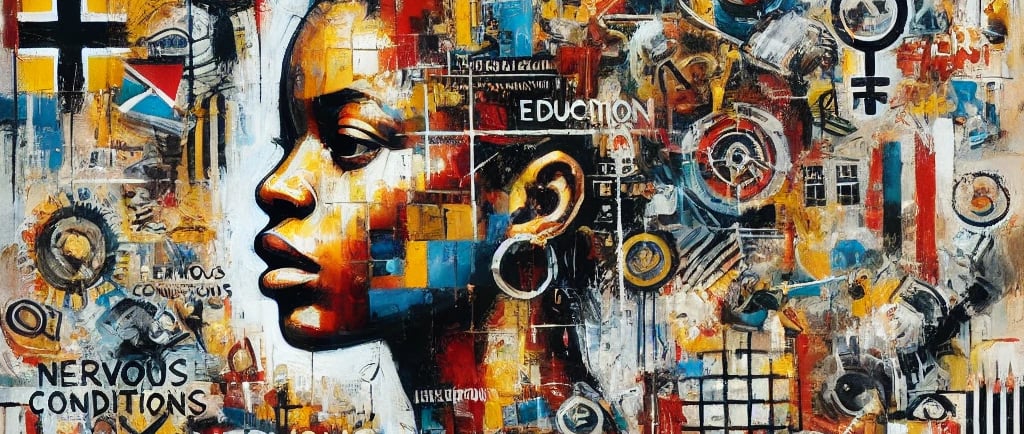Queer Potential in Tsitsi Dangarembga's Nervous Conditions
In my thesis chapter, I explore the queer potential within Tsitsi Dangarembga's Nervous Conditions, highlighting how the character Nyasha challenges colonial narratives of sexuality and gender. I invite you to consider how this canonical African novel expands the boundaries of queer literature and reflects on the decolonisation of identity in a postcolonial context.
BOOK REVIEWS
Nozipho F Wabatagore
11/1/20242 min read


In 1988, just eight years after Zimbabwe gained independence from the colonial British regime, Tsitsi Dangarembga became the first black Zimbabwean woman to publish a novel, Nervous Conditions (1988) in English, which won the Commonwealth Prize in 1989. Nervous Conditions, which explores the experience of black women’s experience in 1960s to 1970s Rhodesia within a domestic traditional family setting, raised Dangarembga’s profile both as a novelist, playwright, and filmmaker. Since then, Dangarembga drew public attention when Nervous Conditions was named by the BBC in 2018 as one of the top 100 books that have shaped the world. However, although Nervous Conditions has received a tremendous amount of critical acclaim and critical attention in different sectors of literary research, such as postcolonialism, medical humanities, and feminism, it has garnered little attention in queer literature.
This paper calls for the recognition of Nervous Conditions as a significant canonical African novel that breaks the barriers of familial boundaries in its portrayal of queer potential in its characters, specifically Nyasha. Expanding the category of ‘queer literature’, my paper raises important questions about how and why we might read a supposedly heterosexual text by deploying a queer lens. I explore how Dangarembga’s preoccupation with female oppression within domestic Shona families not only reflects the colonial context of Rhodesia but, more importantly, portrays Nyasha’s efforts at decolonising sexuality and gender within the colonial heteropatriarchal family. The crisis of identity faced by one of the novel’s most controversial adolescents, Nyasha Sigauke, foreshadows a queer utopian future. At the same time, Nyasha is a character interested in narratives of oppression to undermine Babamukuru, her father’s colonial narratives. By emphasising the necessity of sexual and gender decolonisation whilst seeing a postcolonial Zimbabwe, Dangarembga establishes a decolonial counter-narrative influenced by Franz Fanon’s The Wretched of the Earth (1963) and also José Esteban Muñoz’s Cruising Utopia (2009). In her brave portrayal of Nyasha Sigauke, a hybrid character with both Shona and British influences who ultimately escapes the here and now of heterosexual temporality, Dangarembga challenges her readers to question the colonial myth of homosexuality as Un-African.
Bibliography
[1] Tsitsi Dangarembga, Nervous Conditions, (London: Faber & Faber Limited: 2021), p. 92. Subsequent references will appear as a bracketed ‘NC’ followed by a page number.
[2] Audre Lorde, Your Silence Will Not Protect You, (London: Silver Press: 2017), p. 22.
[3] Dangarembga, Nervous Conditions, p. 92-93.
[4] Ibid., p. 93.
[5] Ibid., p. 118.
[6] Lorde, Your Silence Will Not Protect You, p. 22.
[7] Ibid., p. 26.
[8] Dangarembga, Nervous Conditions, p. 119.
[9] Ibid., p. 118.
[10] Lorde, Your Silence Will Not Protect You, p. 27.
[11] Adrienne Rich, Compulsory Heterosexuality and Lesbian Existence, (London: Onlywomen Press Ltd: 1981)
[12] Lorde, Your Silence Will Not Protect You, p. 23.
[13] Mia Swart, ‘Tsitsi Dangarembga: Life in an ‘ever-narrowing Zimbabwe’, https://www.aljazeera.com/features/2020/11/16/qa-tsitsi-dangarembga [accessed 23 August 2022]
[14] Ibid
[15] ‘The 100 stories that shaped the world’, https://www.bbc.com/culture/article/20180521-the-100-stories-that-shaped-the-world [ accessed 01 September 2022]
[16] Rich, Compulsory Heterosexuality, p. 18.
[17] Ibid., p. 18
